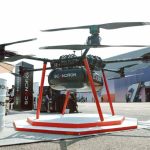Cultivating 'CYBERSECURITY' culture among employees is best defense against cyber attacks
The digital world has ushered in a new era of speed and efficiency but it also has vulnerabilities exploited by sophisticated invisible enemies in the cyberspace, ready to launch an attack at every opportunity in exchange for huge sums of money.
Taking advantage of the situation when the world is reeling from a devastating pandemic, more cybercrimes were committed and reported against businesses causing massive disruption to their operations worldwide.
 Last May, the largest petroleum pipeline operator in the US, Colonial Pipeline, paid a group of Eastern European hackers, the Darkside, $5 million in ransom after the company’s system was embedded with a ransomware using just a single leaked password. The incident disrupted fuel supply in the East Coast for several days, causing panic-buying, shortages and fuel price spikes in some states.
Last May, the largest petroleum pipeline operator in the US, Colonial Pipeline, paid a group of Eastern European hackers, the Darkside, $5 million in ransom after the company’s system was embedded with a ransomware using just a single leaked password. The incident disrupted fuel supply in the East Coast for several days, causing panic-buying, shortages and fuel price spikes in some states.
In the global cargo industry, cargo theft is a recurring problem. But in recent years, forwarders and shipping companies have fallen victims to cybersecurity attacks. In 2019, Maersk, one of the world’s leading shipping firms, experienced cybersecurity attack, forcing it to buy 4,000 servers and 45,000 PCs almost overnight to keep its operations running.
 Cybersecurity attack damages in 2020 was estimated at $1 trillion. But this year, Cybersecurity Ventures, the world’s biggest research cybersecurity firm, forecasts the global cybercrime damages to reach $6 trillion. And over the next five years, it would rise to $10.5 trillion as cybercriminals become more aggressive and sophisticated against the backdrop of a more digital world.
Cybersecurity attack damages in 2020 was estimated at $1 trillion. But this year, Cybersecurity Ventures, the world’s biggest research cybersecurity firm, forecasts the global cybercrime damages to reach $6 trillion. And over the next five years, it would rise to $10.5 trillion as cybercriminals become more aggressive and sophisticated against the backdrop of a more digital world.
Game-Changer Tech Trends
For three days this month, more people in the air cargo industry, as well as freight forwarding, airlines and aviation, got the chance to learn more about technologies and how they can utilize it to promote business growth through CargoAi’s first webinar, Summer Tech, held on 3-5 August 2021.
“At CargoAi, our raison d’être has always been to digitalize air freight in a simple and human way. This Tech Summer is the concrete manifestation of this desire. Our ambition is to make Tech accessible to everyone by providing advice, explanations and a platform for exchanging best practices on the subject,” said Matthieu Petot, Founder & CEO of CargoAi, a CargoAi, an online platform offering air cargo digital solutions to freight forwarders, airlines and GSAs.
There’s no doubt the air cargo industry is heading for major digitalization changes and companies must actively engage on this path to survive and thrive.
Ricardo Pilon, VP-Strategic Solutions, Aviation Strategies (Member of the Board of Advisors, CargoAi), one of the speakers at the event, told Air Cargo Update the game-changer technologies are already being utilized in the industry and will eventually become the norm to have the best results and promote business growth.
“Ultimately, for operators (and FFs) an enterprise cargo management center that aggregates all functions and allows data-centric business management and optimization. This will have the best result when the industry itself embraces digital data supply chains,” said Pilon.
“It includes steering operations and sales, pricing, and capacity decisions based on recommendations about where to enable trade around which customers, source markets, and products through digital procurement and service product distribution. Different bits and pieces of this can be delivered, depending on companies’ business and consequently digital capability priorities. But aggregation of all business areas to function more dynamically and prescriptively will be key. And a game-changer enabling improved customer success and ultimately world trade,” he added.
Magali Beauregard, Chief Commercial Officer, CargoAi, said a number of disruptive technologies will inevitably impact the airfreight industry and it behooves stakeholders within it to prepare and adopt the necessary changes.
“A number of disruptive technologies will impact the airfreight industry in the long run. However, the technical debt that manifests in our industry through legacy systems, outdated messaging types, heavy and manual ways of operating first need to be overcome and transformed as a priority,” she said.
“There is a clear need to reduce and replace the web of legacy technology with more modern applications where possible and embrace the “hyper connect” API mindset. We’re proud to be contributing to the IATA ONE Record initiative as API are the foundation for any modernization efforts and the true benefits will truly unlock once there is API standardization – and adoption- within the industry.”
Cybersecurity Culture
 In our new normal where remote work and online business transactions have become ubiquitous, cybersecurity issues are on top of agenda among companies. There are protocols to be observed and followed at all times. But still, lapses cannot be underestimated.
In our new normal where remote work and online business transactions have become ubiquitous, cybersecurity issues are on top of agenda among companies. There are protocols to be observed and followed at all times. But still, lapses cannot be underestimated.
Francois-Xavier Gsell, Chief Technology Officer of CargoAi, said the risks will always be there and the best defense is to educate staff about the cybersecurity threats lurking out there and how they can help protect their company’s assets.
“There will never be a purely technological answer that brings risks down to Zero; while the new techniques and tools like IoT that are adopted across the industry can help improve your security posture as well as efficiency, they can also become a vector for further attacks. While putting in place suitable security systems and procedures is essential, the first—and often overlooked— step is to develop a cybersecurity culture that gives employees knowledge around the threats that they are facing,” Gsell explained.
 “Employees at all levels will often experience situations about balancing between the risk of those threats and the efficiency of a process. So this culture must help employees understand the threats better so that they may be better judges when needed. At the same time, a better understanding of the threats leads to better acceptance of the constraints from security policies, therefore allowing them to be more aggressive,” he added.
“Employees at all levels will often experience situations about balancing between the risk of those threats and the efficiency of a process. So this culture must help employees understand the threats better so that they may be better judges when needed. At the same time, a better understanding of the threats leads to better acceptance of the constraints from security policies, therefore allowing them to be more aggressive,” he added.
Improving business model execution through workflows and hiring the right people for the job help companies embrace digitalization, thus, improve performance and help staff handle possible digital threats.
“In the short term, we improve business model execution through workflows to allow the opportunity for digitization to be successful. In our overall approach though, we are helping companies in crafting their desired future market position using global megatrends to elevate the thinking in required strategic capabilities. We then assess company readiness to implement components of these capabilities using digital technology based on a balance between corporate and industry priorities. And first things first: Accelerating the performance through improved distribution through real-time connectivity is the immediate objective,” shared Pilon.
Petot, for his part, said: “For us, it starts by creating our organization with the right people, culture, technology and strategy and ensuring that the CTO and its team become trusted business partner. As a young organization, we don’t need to adapt as much as advocate and support the industry with its digitization efforts moving forward. We’re part of the IATA One Record working group and we’re keen to expand our contribution via regular exchange with this industry, whether it’s via similar Tech Summer events or any other format moving forward.”














